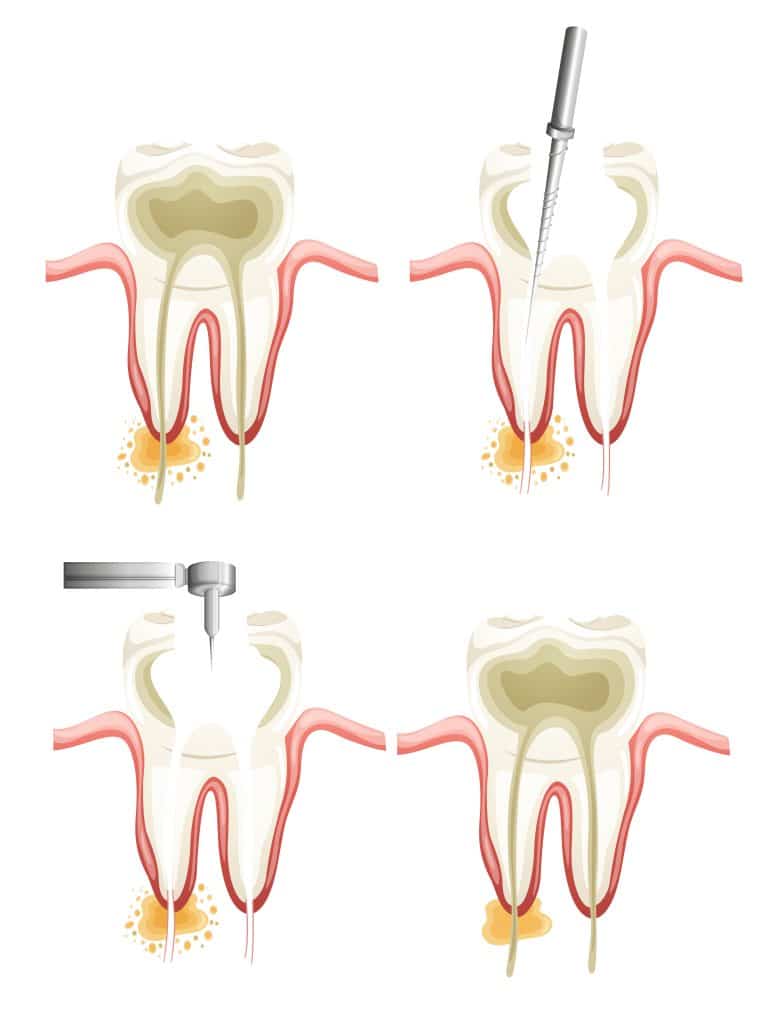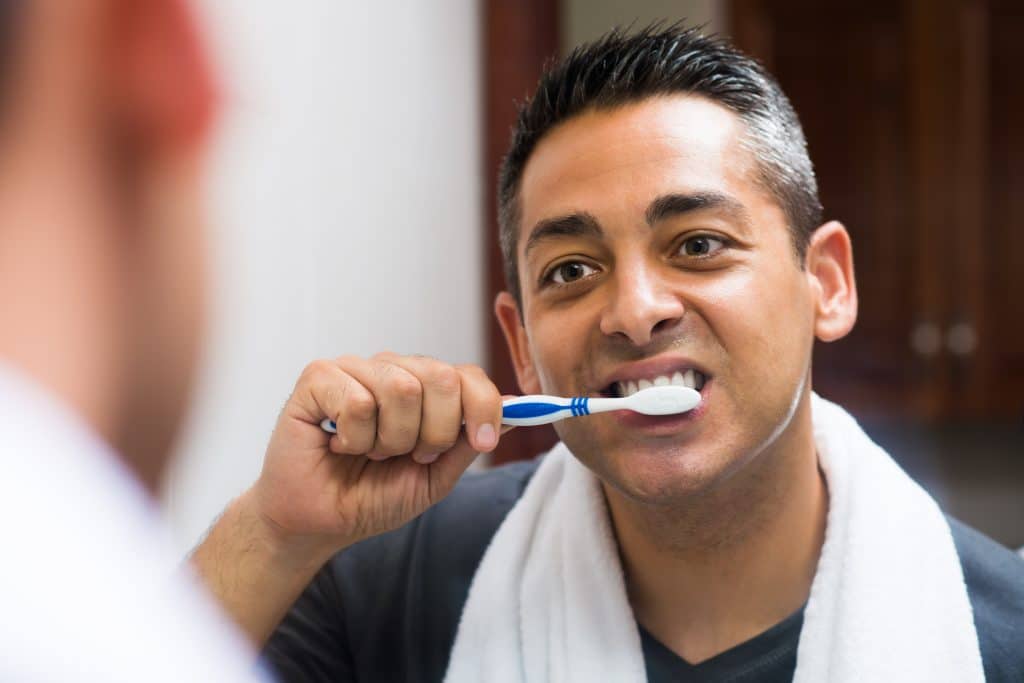Root canals are often notorious for being painful and being told that you need one can cause a lot of anxiety. However, a root canal is an important procedure that will repair your natural tooth and prevent you from losing it. With the right anesthesia and dentist, root canals can be quick, painless, and will stop the pain in your tooth.
Many patients will have questions about the procedure, such as “Why do I need a root canal?” and “How long does a root canal take to heal?.” At Corner Street Dentistry, we can help you understand the basics of root canals so you can mentally and physically prepare for your procedure.
What is a Root Canal?

When bacteria gets into the pulp of a tooth, in the center, it can cause an infection that causes pain and even leads to the possibility of losing the whole tooth. A root canal is when the infected pulp is removed and a filling is used to replace the pulp once the inside of the tooth has been cleaned of the infection. This is similar to a regular filling but a little more complex.
Root canals are needed if a cavity is left untreated for too long and the pulp becomes infected. Bacteria can also enter the inside of the tooth through a cracked tooth or other damage that may occur to the tooth, which may cause infection resulting in the need for a root canal.
Unlike root canals in the past, modern techniques have made getting a root canal much less painful. Many compare it to a cavity filling and if you experience discomfort, it comes from the impacted tooth rather than the procedure itself. If you do have any unusual discomfort during the root canal, it is important to inform your dentist.
Signs you may need a root canal
Your dentist will examine your tooth and recommend that you need a root canal or other dental procedure if needed.
Although it’s possible to have zero symptoms, most patients tend to have some indication that something is wrong with a tooth in need of a root canal. If you do have the following symptoms, it’s important to schedule an appointment with your dentist to see if you might need a root canal:
- Tooth pain that doesn’t disappear
- Tooth sensitivity to hot and cold
- Swollen jaw and gums
- Tooth discoloration
- Pain when pressure is applied
- Pimples on the gum
- Loose tooth
How Long Does a Root Canal Take?
Your dentist will assess the condition of your tooth before performing a root canal. If the tooth is severely damaged or infected, the root canal procedure may take up to two visits to complete.
The average root canal visit can take between 30 and 60 minutes to complete; if the tooth is larger, it may take up to 1 hour and 30 minutes. During the root canal, your dentist will apply local anesthesia to the infected tooth and surrounding area to prevent any pain. If you are sensitive to anesthesia or have dental anxiety, speak to your provider about other options that may be available.
What to Expect After a Root Canal
Following your root canal procedure, you shouldn’t experience any pain, but may have some tooth sensitivity that will go away after a few days.
The numbness from the anesthesia will wear off in a few hours. During that time, avoid chewing and drinking hot liquids to prevent any damage. Once the numbness has worn off, you can drink and eat as normal except for sticky foods. Be careful to avoid chewing directly on the tooth.
You can return to work and regular activities after the procedure, although if your mouth is still numb, you may have trouble articulating words.
How Long Does a Root Canal Take to Heal?

A root canal with proper treatment will heal within a couple of days to a week. During the days following your root canal, you may experience sensitivity and swelling in the area where the procedure was performed.
If you do have any pain or discomfort, you can take over the counter pain medications, as long as you have discussed it with your healthcare provider.
Although you may experience swelling and some discomfort from a root canal, if you experience any of the following symptoms, contact your dentist as soon as possible:
- Uneven bite
- Any signs of an allergic reaction such as a rash or itching
- Swelling around your mouth not related to the procedure
- Severe pain or pressure that doesn’t go away after a day or two
How to speed up healing time
How long does a root canal take to heal will depend on the condition of the tooth. As with any type of dental or health procedure, a root canal will take some time to heal, but is fairly fast compared to more extensive dental procedures.
If you want to make sure your root canal is healing on time, there are some simple tips to help facilitate the healing process:
- Avoid eating or drinking hot liquids until your numbness has worn off following the root canal.
- Take any pain medication that your doctor or dentist has recommended.
- Avoid spicy foods or alcohol for a few days to avoid inflammation until your root canal has healed all the way.
- Try to eat on the opposite side of the mouth your root canal was on; being gentle with the root canal side will help give it more time to heal.
- Follow any of your dentist’s post-procedure recommendations and instructions to ensure your mouth is healing properly.
How to Keep Your Teeth Healthy After a Root Canal

Following a root canal, it’s important to practice good oral hygiene to minimize your risk of another root canal while keeping your new one healed properly.
Brush your teeth twice a day, floss once a day, and use an antiseptic mouthwash regularly to help fight bacteria and plaque. Be sure to go to any follow-up visits with your dentist to make sure your root canal is healing as it should be, as well as yearly check-ups to maintain a healthy smile for many years to come.
Most root canals are routine procedures that will help to relieve any pain from an infected tooth. Although they can cause some worry, they are often no worse than a cavity filling in terms of discomfort, and will prevent you from losing the whole tooth. If you have concerns about the procedure, speak to your dentist and they can walk you through the procedure to help ease your worries and restore the health of your mouth.
